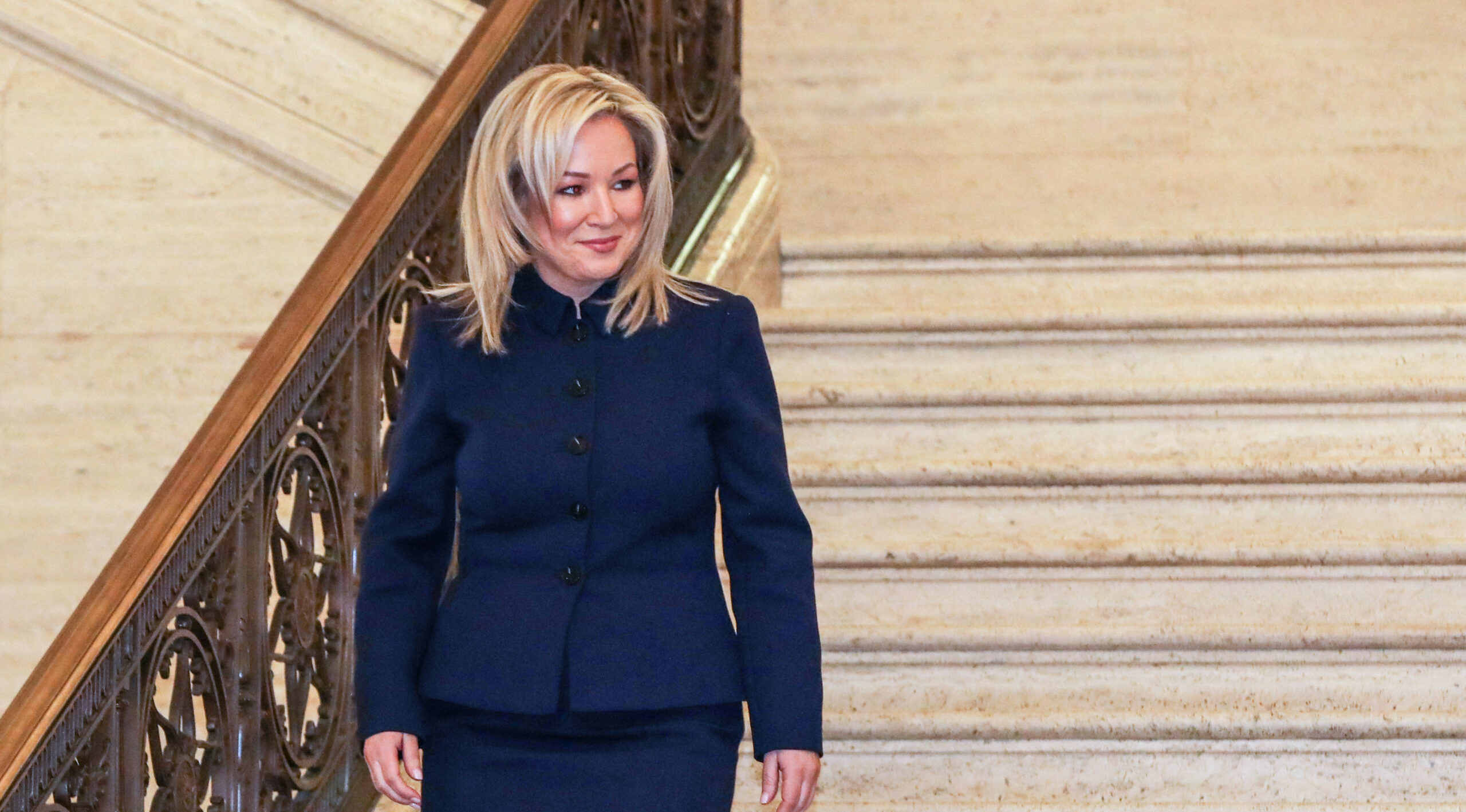Sinn Féin’s Michelle O’Neill yesterday became Northern Ireland’s First Minister, the first pro-Irish reunification politician to lead the region in its 103-year history. This is of huge symbolic significance, but of less practical importance than those unfamiliar with Northern Ireland’s complex politics might realise.
Less practically important, firstly, because the deputy First Minister will be Jeffrey Donaldson, leader of the firmly pro-British DUP, and his post and O’Neill’s are legally equal in power and mutually codependent; their parties must also share power with a further two, neither of them Irish Nationalist, in an ideologically broad cabinet. So, Sinn Féin does not have a battering-ram to reorient Northern Ireland towards the Republic, but will be constrained by a messy coalition.
The symbolism is, however, undeniable — Northern Ireland, a state specifically designed to have an inbuilt Unionist majority, will now have an overtly Irish Republican leader.
One factor which enabled Sinn Féin to become Northern Ireland’s largest party is shifting demographics. While once high birth rates in the mainly pro-reunification Catholic community have now collapsed, in common with all Western societies, those among mostly pro-British Protestants have fallen even faster. The 2021 census showed people from Catholic backgrounds outnumbering those from Protestant backgrounds for the first time ever, by 46% to 43%. The Catholic plurality is much wider among those still too young to vote, so simple demographic inertia alone will see the potential vote for pro-reunification parties rising for at least the next few decades.
Yet, as experience in places as varied as Scotland, the Basque Country, Quebec, and New Caledonia shows, it’s quite hard to get voters in stable functioning democracies to opt for radical shifts in sovereignty. In a narrow border poll, the result will be decided by those with weak allegiances to either camp or mixed allegiance to both — an odd mix of liberal progressives with strongly transnational outlooks, conservative Catholics, the growing number of people from mixed families, and even more rapidly growing ethnic minority population.
Unionism’s strongest political suit in the long term is probably to allow Northern Ireland to meander along as a very odd outlier in the UK with a decent quality of life for all and few political crises. In that sort of context, some voters will always choose the devil they know rather than take risk with peace and their own livelihoods — even many voters who don’t feel the slightest emotional connection with Britishness. Restoring devolved government makes that sort of strategy possible.
Had the DUP not returned to government this winter, a sense was developing that both the British and Irish government were giving up on the prospect of self-government in the region ever working again. That could well have left Northern Ireland a dysfunctional basket case, with snarling inter-communal relations and malfunctioning public services. In that context, the swing voters who will decide any close border poll could well have calculated that while radical constitutional change is always risky, rule from Dublin might at least be coherent and effective.
By returning to government this week, the DUP has doubtless given Sinn Féin a huge symbolic coup. At the same time they have also taken a step essential to defending the Union in a rapidly changing Northern Ireland — Donaldson knows this, and so do those in his party who supported his decision to go back into government.










Join the discussion
Join like minded readers that support our journalism by becoming a paid subscriber
To join the discussion in the comments, become a paid subscriber.
Join like minded readers that support our journalism, read unlimited articles and enjoy other subscriber-only benefits.
Subscribe